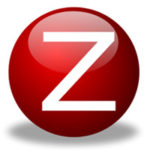 Please join us for the second event of the Fall 2017 Hallie Ford Literary Series, a reading by Mike Scalise. The reading will take place on Tuesday, October 24th, at 7:00 p.m. in the Hatfield Room (2nd floor of Hatfield Library) and is free and open to the public.
Please join us for the second event of the Fall 2017 Hallie Ford Literary Series, a reading by Mike Scalise. The reading will take place on Tuesday, October 24th, at 7:00 p.m. in the Hatfield Room (2nd floor of Hatfield Library) and is free and open to the public.
Scalise’s memoir, The Brand New Catastrophe, was the recipient of the Center for Fiction’s 2014 Christopher Doheny Award. Scalise’s story begins when a ruptured pituitary tumor leaves him with the hormone disorder acromegaly at age 24, and he must navigate a new, alien world of illness maintenance. His mother, who has a chronic heart condition and a flair for drama, serves as a complicated model. Ultimately, it is a moving, funny exploration of how we define ourselves by the stories we choose to tell.
Mike Scalise’s work has appeared in the New York Times, Wall Street Journal, Agni, Indiewire, Ninth Letter, Paris Review Daily, and other places. He is an 826DC advisory board member, has received fellowships and scholarships from Bread Loaf, Yaddo, and the Ucross Foundation, and was the Philip Roth Writer in Residence at Bucknell University.
PRAISE FOR THE BRAND NEW CATASTROPHE:
“His way is with humor, optimism, courage and probing introspection, the very characteristics—combined with crisp prose and a rare and innately interesting medical condition—that make this a winning literary debut.” —The New York Times Book Review
“An offbeat, witty memoir. . . Scalise is unsparing in recounting his reaction to his diagnosis while keeping the reader engaged in a story about catastrophe. . . Sensitive and well-written.”
—Publishers Weekly
“In his memoir The Brand New Catastrophe, Mike Scalise meditates with crackling wit and self-awareness on chronic illness, family, and the clichés of catastrophe stories.”—Kenyon Review
“The effects of illness on self-image and its gravitational pull on family, friends, and spouse are touchingly detailed in this upbeat health memoir.” —Booklist review
“Despite the seriousness of the subject, The Brand New Catastrophe manages to be as funny as it is smart about mortality, the fragility of our bodies, and understanding the worst things that happen to us.”—Buzzfeed Books
“The Brand New Catastrophe reveals the human experience of acromegaly with a beautiful and skillful clarity, rendering the rare and misunderstood disorder with an intimate, personal grace.” —Literary Hub
Image source: https://www.goodreads.com/author/show/6873239.Mike_Scalise









